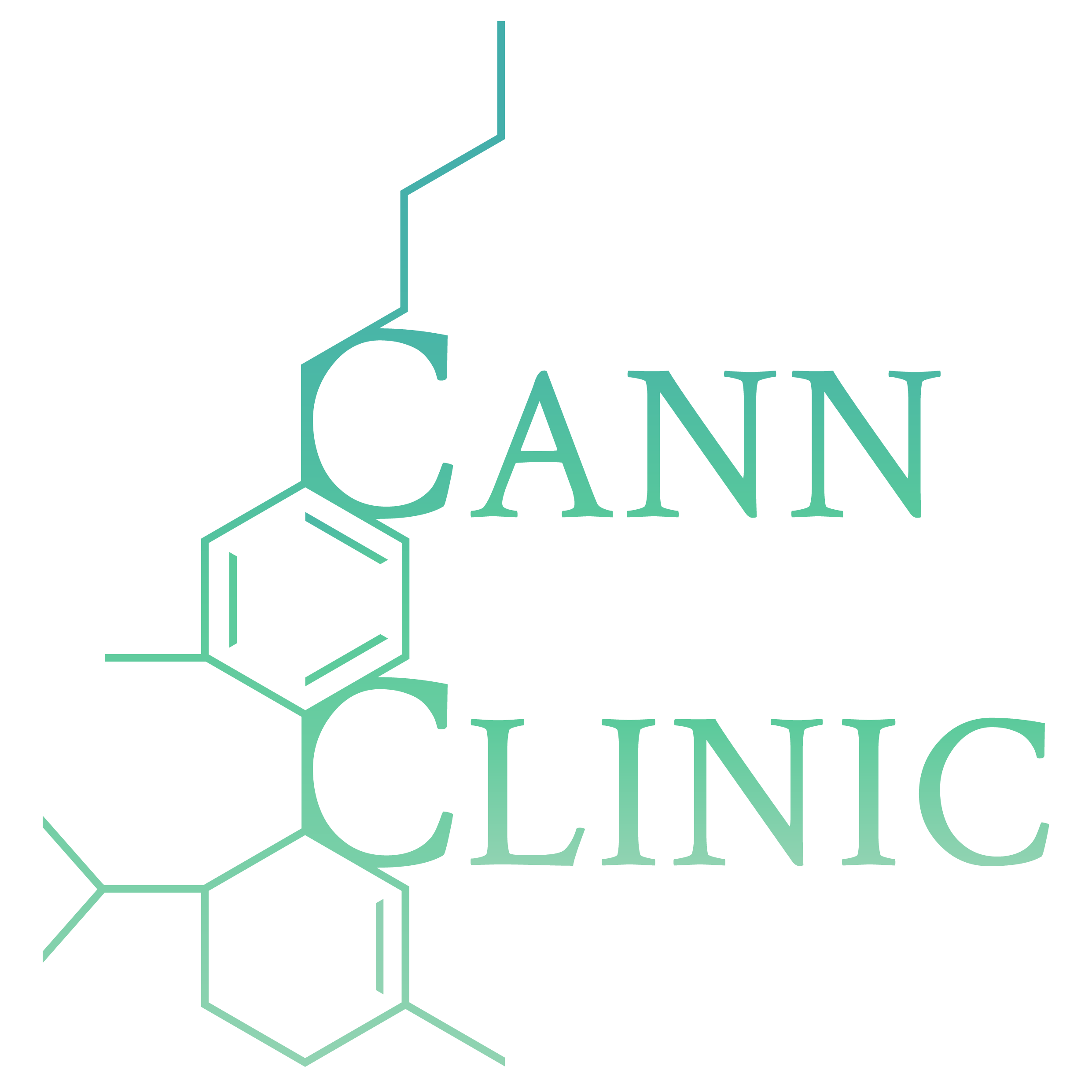Treatment Objectives
ADHD/ADD Treatment
ADHD/ADD Treatment
Conventional ADHD (attention deficit hyperactive disorder) treatment usually includes behavioral therapy and emotional counselling. This is combined with sympathominetic medications which are drugs that help stimulate the sympathetic nervous system. There are a number of side effects that can be problematic for some, and the ADHD medication available does not necessarily make any changes in the patients condition. It is merely a way of managing the symptoms of ADD and ADHD. Medical cannabis, specifically two constituents of the cannabis plant called Tetrahyrdocannabinol (THC) and Cannabidiol (CBD) have been studied in ADHD patients. By activating the endocannabinoid system, patients have the ability to treat ADHD at its source – in the brain.
Medications for the Treatment of ADHD
- Methyphenidate hydrochloride (Ritalin)
- Dextroamphetamine (Dexedrine)
- Atomoxetine (Strattera)
- Amphetamine mixture (Adderal)
Oftentimes a long-acting methylphenidate such as Metadate LD, Concert and Ritalin make the ADHD patient far more manageable. Unfortunately these ADHD treatments have many unacceptable side effects which include:
Typical side effects of ADHD Medication
- Sleep problems
- Reduced appetite
- Delayed growth
- Headaches
- Stomach pain
- Mood swings
Cognitive Behavioural Therapy is especially effective when working with adult add. Studies indicate patients that receive this type of psychological treatment potentially attain improvement in ADHD symptoms.
It is suggested that within the psychotherapy the following is relevant and should be discussed:
- Implementation of Strategies: Assistance with learning strategies that will improve attention control, impulsivity and memory
- Solving Problems Effectively: Assistance developing skilled thinking, identifying problems and consequences, understanding conflict and making educated decisions.
- Emotional Control: Assistance with feelings and recognising what emotional response the patient is having to specific situations
- Social Skills: Assistance with empathy, negotiation and understanding people for their own personal perceptions and beliefs, conflict resolution
- Critical Reasoning: Assistance evaluating options and developing behavioural skills that work
Medicinal Cannabis Treatment for ADHD/ADD Treatment
Dopamine is a neurotransmitter that helps regulate activity in the brain. The job of neurotransmitters is to transmit signals across brain cells. Brain cells are also known as neurons. Dopamine neurons are ordinarily in high concentration within the brain’s reward centre or the nucleus accumbens. The reward centre is linked up to many biological functions including appetite, focus, sleep, sex, mood and movement.
70% of the brain’s function is to regulate input to the other 30%. Dopamine is a key suppressor of stimuli to the brain. Since ADHD patients have a deficiency in dopamine there is a decreased ability to suppress sensory input from both internal and external sources. The brain becomes overwhelmed with the amount and speed of information coming in. This then creates confusion and an inability to process information effectively. Without adequate dopamine, individuals lose the ability to distinguish between information of importance and that which is less significant.
Cannabinoids indirectly increase dopamine by blocking the action of another neurotransmitter called GABA. GABA acts to dampen the amount of dopamine released in the nucleus accumbens. When GABA is blocked by cannabinoids however, the result is an increase in the amount of dopamine released.

Adult ADD – Isn’t this diagnoses just a cop out for the lazy and irresponsible?
his must be addressed, because the onslaught of judgement that comes from the uneducated and ignorant makes this a “closet diagnosis”. We all know someone with adult add. Whether they know it, or they are keeping this information private for fear of chastisement, we all know one person who is almost always late to appointments, can’t keep track of their paperwork, forever cancelling with friends due to life essentially gobbling them up whole. We risk, and mutter about irresponsibility, rather than open our awareness to their frantic plight of doom. Since adult add is something people opt to keep to themselves, support is inaccessible. Their already shattered psyche is dealing with the copious amounts of responsibility they struggle with., asking for help would be admitting to yet another failure. Many coping skills learnt as children, may be implemented to assist those into adulthood but the suffering of ADHD and ADD symptoms still remain but on a larger scale as they become adults. In such a fast paced world, patients who suffer from ADHD and ADD have a propensity for chaos on a regular basis. Also the genetic potential for bearing children with the same attributes means without adhd treatment .,the chaos grows more unmanageable. It is important to note that there is a positive spin to all this. Those suffering from adult add, are equipped with the ability to think on their toes, and have a limitless resource of creativity that can permeate into all fields of work and very efficiently.
Statistics: Population Diagnosed with ADD / ADHD in Australia
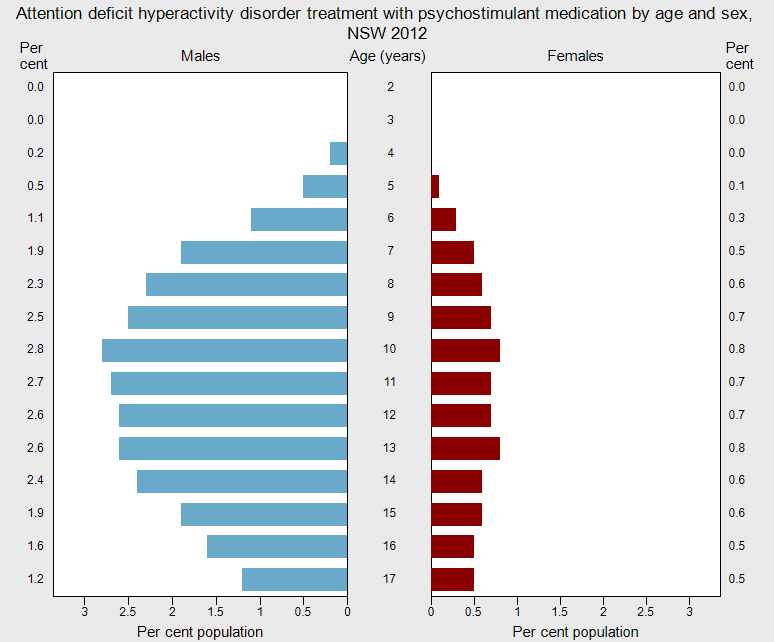
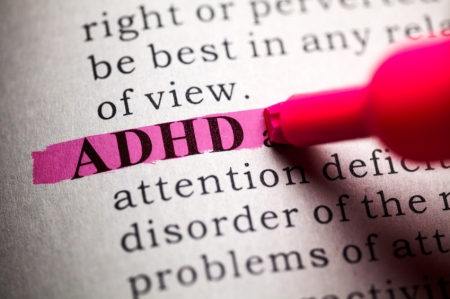
What is ADHD/ADD Treatment?
- Attention Deficit Hyperactivity Disorder (ADHD), formerly called hyperkinesis.
- A consistent neurological syndrome characterised by hyperactivity, distractibility, and a tendency towards impulsivity.
Unlike similar behaviors caused by emotional problems or anxiety, ADHD does not fluctuate with emotional states, though it can be present alongside anxiety and depression. Those suffering with ADHD symptoms will have found the disorder to be problematic for a longer term than the span of childhood. ADD and ADHD creates difficulty from school, to at home, in relationships with other people and at work. ADHD is usually diagnosed before age seven, though there are many cases where people are diagnosed as adults. The relief this brings to those undiagnosed as children is rather surprising. No one wants to find out they have a mental disorder or a condition prohibiting them from living a normal life, yet having an understanding of the condition brings great clarity and an acceptance of what one needs to work through. ADHD is often accompanied by a learning disability such as dyslexia – this more predominant in males over the female populous.
Causes of ADHD/ADD Treatment
The cause of ADHD is unknown, although scientists feel that at least 50% of cases have a genetic component. Also studies show that people with ADHD have 70% more dopamine transporters, thereby decreasing the availability of free dopamine.
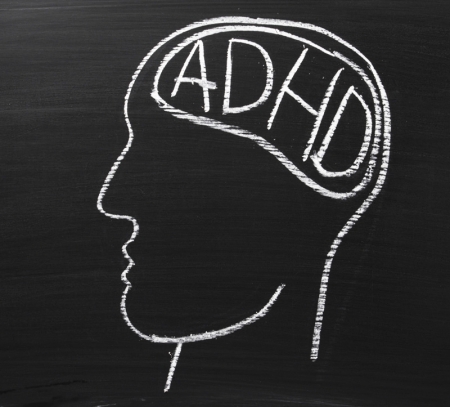
Symptoms of ADHD/ADD Treatment
- Hyperactivity
- Restlessness
- Fidgeting
- Inappropriate activity when environmentally and socially unacceptable
- High levels of distractibility
- Inability to carry out simple tasks to completion
- Impulsivity (thoughtless speech and actions)
Clinical Studies / References:
